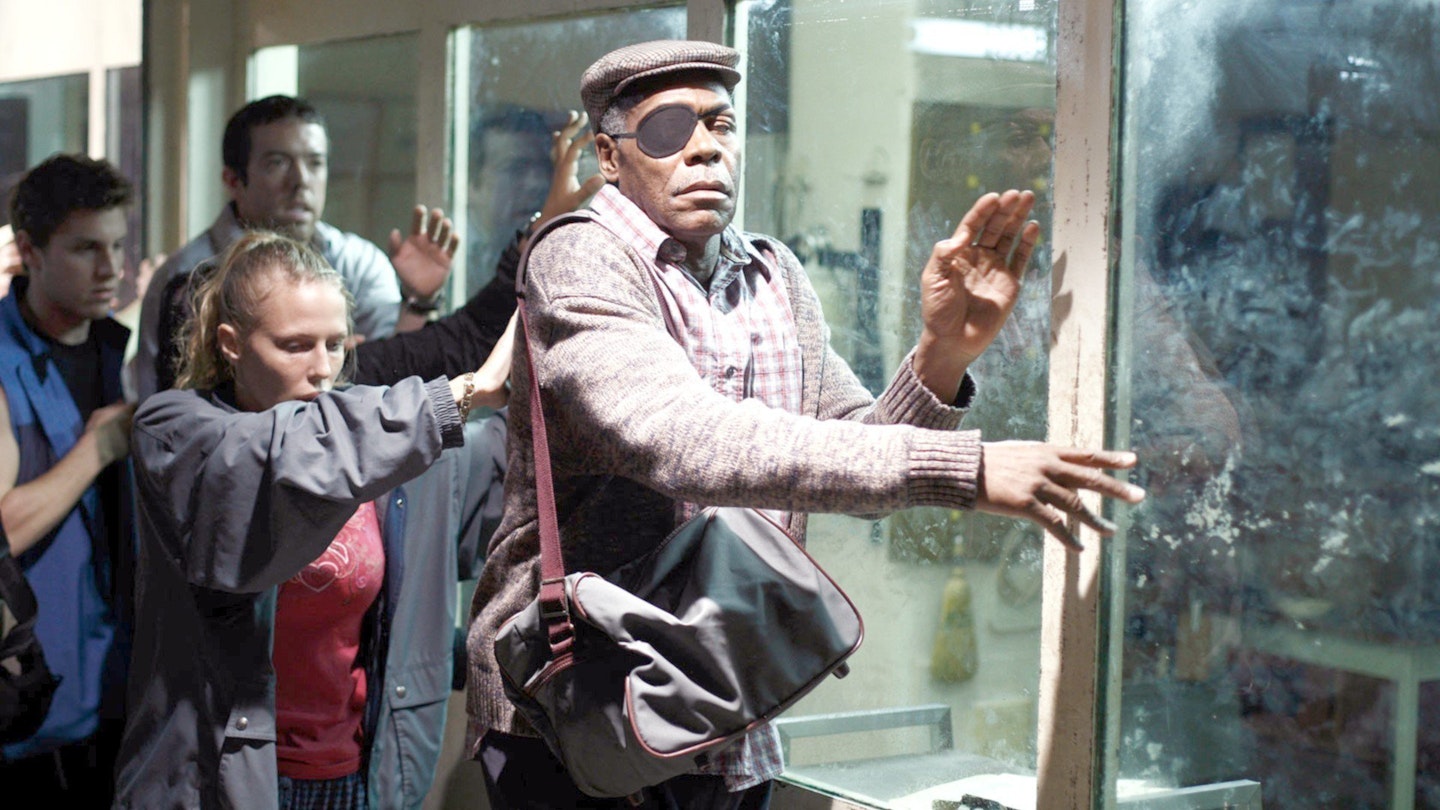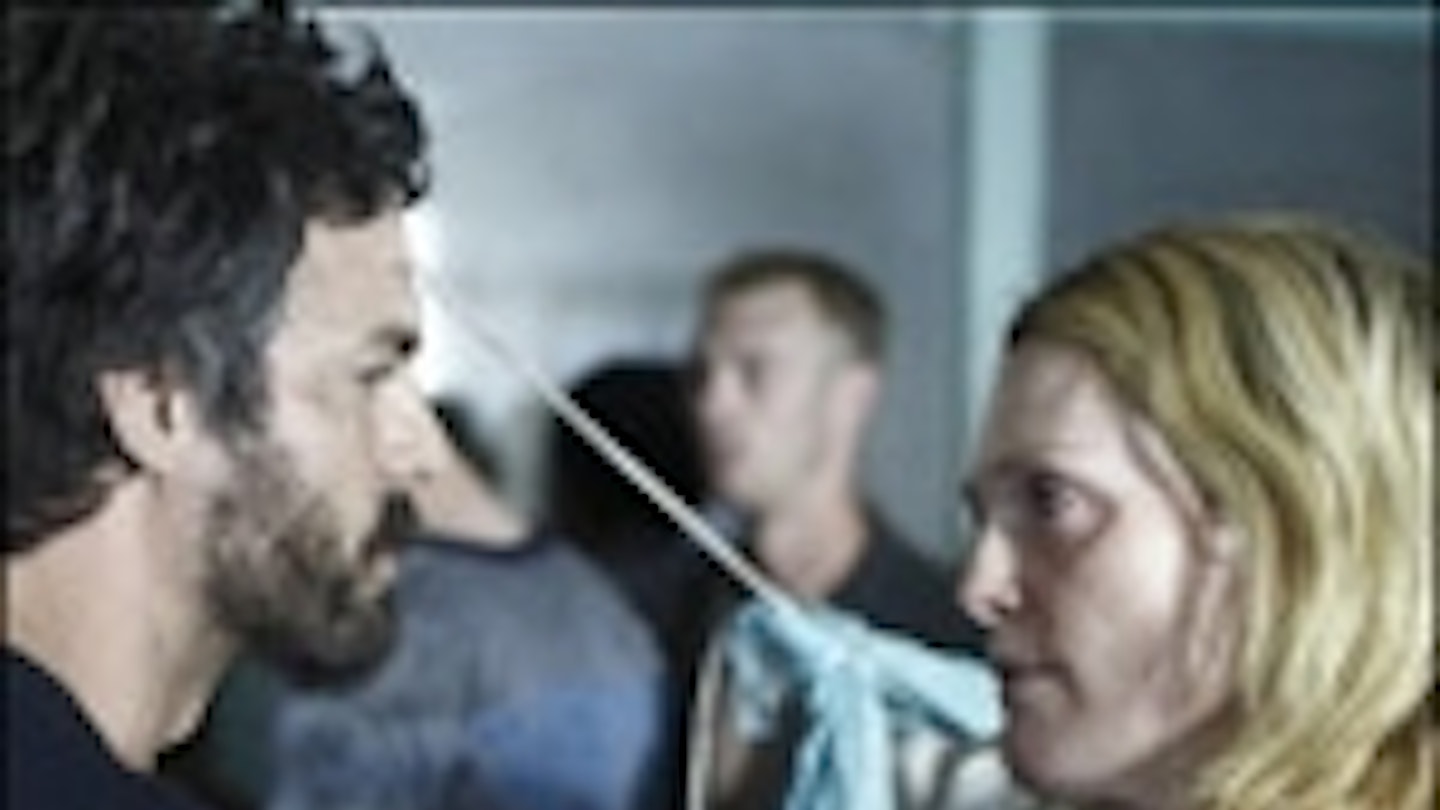With Blindness, Brazilian director Fernando Meirelles follows up awards-laden work on City Of God and The Constant Gardener, while Canadian screenwriter-actor Don McKellar adapts a serious novel by the Portuguese Nobel Laureate José Saramago. As film apocalypses go, this is clearly in line with Children Of Men rather than I Am Legend (though it casts the leading ladies of both those films, Julianne Moore and Alice Braga), and hopes to rank beside The Road, the forthcoming heavyweight of the no-fun-end-of-the-world epic, rather than, say, The Day After Tomorrow or Mad Max 2.
Just as we assume P. D. James was unaware that Brian Aldiss’ Greybeard had exactly the same premise as her Children Of Men, we don’t believe that a reputed literary titan like Saramago would simply lift the plot of The Day Of The Triffids and drop the killer plants. From the outset, with its nameless city setting (locations in , and ) and equally unnamed characters, this is clearly supposed to be an allegory rather than pure sci-fi. Not only is the film not interested in how and why people suddenly go blind, but neither is one main character (Mark Ruffalo) who’s supposed to be an eye specialist. Similarly, the film tells purported truths about human behaviour in a crisis — a useful message of many fall-of-civilisation films is that if the apocalypse happens, you should stick with nice middle-class people rather than nasty working-class brutes who will become cavemen within minutes — even as characters act in contrived, unbelievable manners. Having everyone avoid calling each other by name, especially in a world where verbal communication is all they can rely on, makes for convoluted, hollow dialogue, and unwise patches of dithery narration from Danny Glover don’t help.
Nevertheless, long stretches of Blindness work. Like City Of God and McKellar’s previous end-of-the-world film (Last Night), it brings on a range of vividly sketched characters in its opening scenes, and deftly establishes their connections — in this case, as disease vectors who pass on (and in one case, crucially, don’t) the blindness.
The descent of the concentration-camp-like internment centre into a foul hellhole is queasily convincing, and most performances are strong. Moore makes a compelling moral centre, Ruffalo equivocates as her woolly husband, and Gael García Bernal has most fun as the opportunist bastard who reacts to the doctor’s talk of committees and consensus by declaring himself “King Of Ward Three”, backed up by a blind-from-birth flunky (Maury Chaykin) who is “some kind of superhero” in this world.
In the third act, the film gets out of prison and ventures through a 28 Days Later-look stalled city of groping scavengers, but it has already run out of story. The last twist is guessable, and wouldn’t have got through if Robert McKee gave seminars to Nobel Laureates. Ironically, what works best is the material that also works in the most generic doomed-world movies or TV shows: the vision of the ruins of our present-day civilisation; the paranoid depiction of a panic-stricken government turning on civilian populations; the battles over meagre resources.


